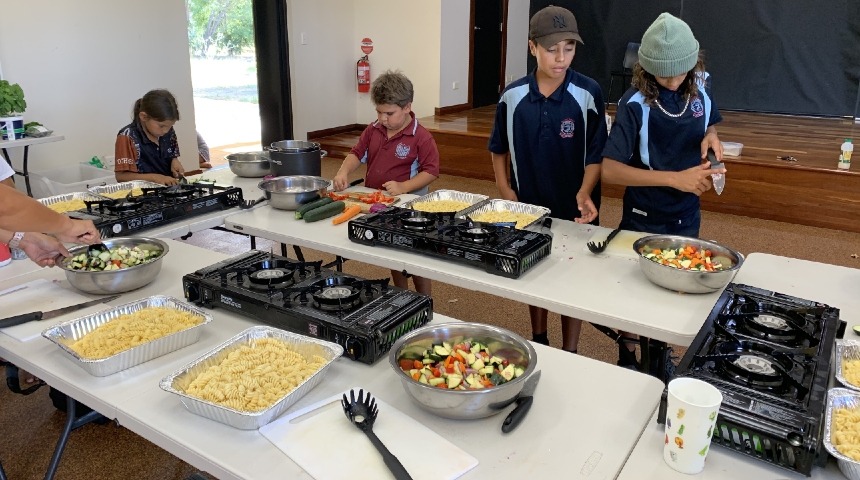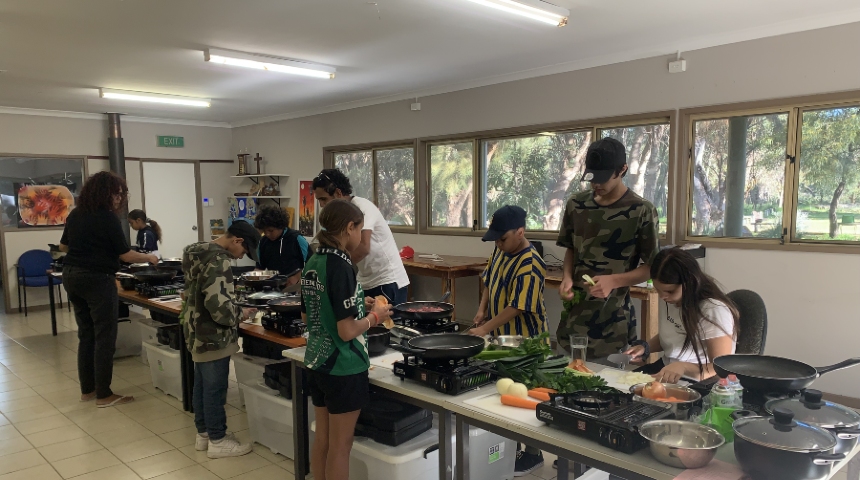
A new research project has been launched to improve Aboriginal health outcomes by developing knowledge and skills in good nutrition, healthy eating and cooking.
The Deadly Koolinga Chef Program, led by Associate Professor Caroline Nilson, provides cooking and nutrition instruction for six to 12-year-old children on a weekly basis through school terms, with additional short-courses for adolescents.
“We’ve had terrific success proving the concept with a project in Pinjarra, where we saw really effective delivery of the cooking program with continued attendance and community participation,” said Dr Nilson.
“I’m really excited to now be expanding this to other locations and taking the research a step further.
“We anticipate that the benefits of this project will not only accrue to children, but that by association the translation of the knowledge and skills will impact the health of the children’s families.”
The research project is under the umbrella of the Ngangk Yira Research Centre for Aboriginal Health and Social Equity, which is led by Professor Rhonda Marriott and has a strong record of improving Aboriginal healthcare.
I’m really excited by the Deadly Koolinga Chef Program and the potential for it to grow further to reach Aboriginal households throughout Western Australia.
Professor Rhonda Marriott
“This work directly addresses the need to increase our focus on food and nutrition to improve Aboriginal health outcomes, as identified in the Close the Gap Progress and Priorities Report.”
The Ian Potter Foundation has provided $200,000 funding for the program, in addition to two grants totalling $184,000 from the Department of Health. Their support is crucial in kickstarting this important research.
 Image caption: A class of Aboriginal kids takes part in a cooking lesson in Pinjarra.
Image caption: A class of Aboriginal kids takes part in a cooking lesson in Pinjarra.
The funding will support the upskilling and training of selected members of the Aboriginal Community Controlled Health Services in areas of nutrition and dietetics and community project management.
This data includes physical sample collection and analysis, demographic data, diet surveys and nutritional knowledge surveys.
“What we discover about how Aboriginal children, adolescents and families benefit from cooking and nutritional education will inform a much bigger picture,” explained Dr Nilson.
“Ultimately, the aim of this research will be to inform the development of a WA specific Aboriginal nutrition promotion framework which can be used by communities across the state.”
This research supports the United Nations Sustainable Development Goal 2, 3 and 4.
For research news delivered to your inbox, sign up to our monthly newsletter.